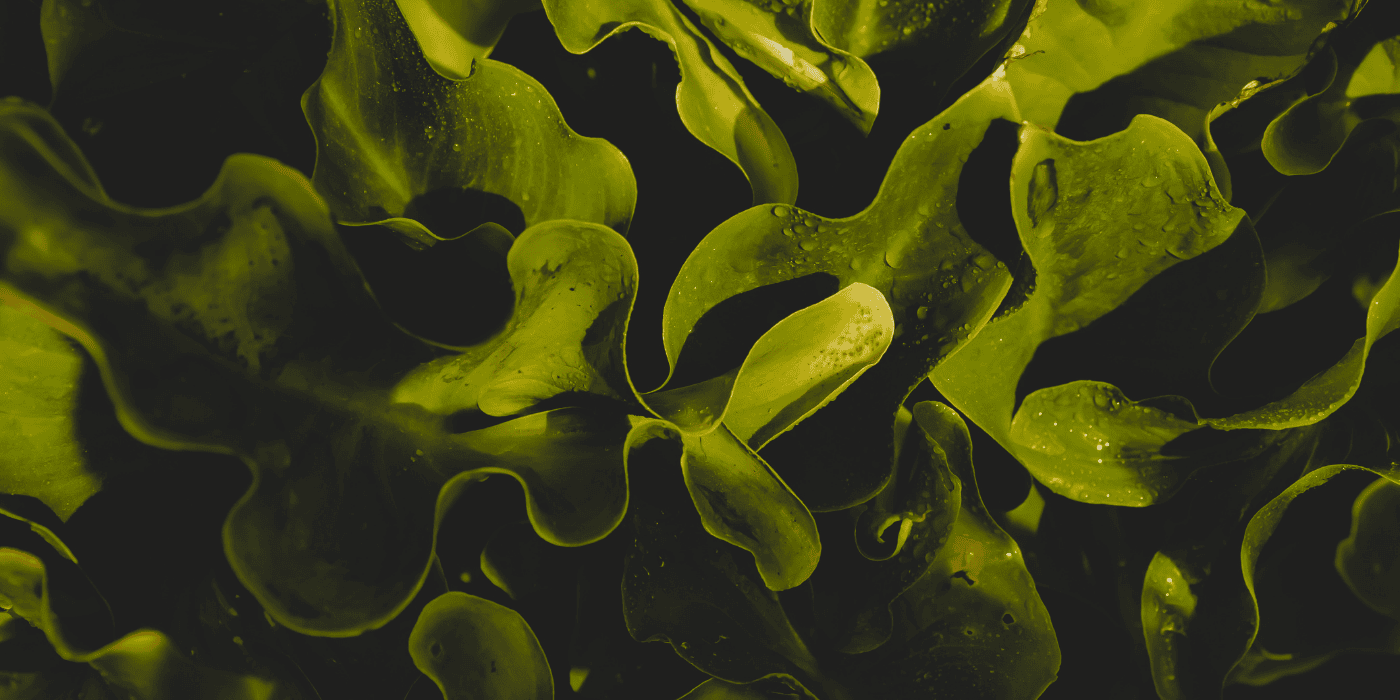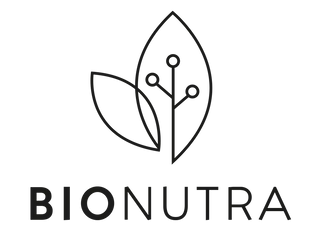Free shipping from 39 € (DE)
30-day return policy
Customer service from experts
4.9 Trustpilot rating
Free shipping from 39 € (DE)
30-day return policy
Customer service from experts
4.9 Trustpilot rating
APPLICATIONS
Kelp algae: Natural iodine from the nutrient-rich brown algae
9 min read
Chinese, Japanese, and Korean cuisines offer a variety of unique flavors, often associated with a healthy diet that supports thyroid balance. Nutrient-rich seaweed plays a central role in these dishes, whether in fresh salads or hearty soups. Kelp, in particular, stands out from other sea vegetables. With its abundance of nutrients and antioxidants, it's considered a potential marine superfood. It's worth exploring its health benefits, nutritional content, and diverse uses. 
1. Kelp - briefly explained
Kelp (ascophyllum nodosum), a large, fast-growing brown algae (seaweed), thrives in cool waters along rocky coasts. Some species can reach an impressive 50 meters in height. If there were a list of the best algae, kelp would certainly be at the top. Due to its size, this algae resembles an underwater tree, but unlike land plants, it has no roots. Instead, it anchors itself to the rocky seafloor, forming dense stands called kelp forests that provide food and shelter for numerous marine animals. These complex ecosystems are an essential part of marine life.
This brown algae is also a pioneer in sustainability. Cultivation is extremely environmentally friendly, as it requires no additional resources such as fertilizer, irrigation, or maintenance – unlike agricultural plants. This makes it an extremely resource-efficient food source.
Kelp is commercially available in various forms, most commonly as long, thick, greenish strands. The flavor is usually salty and slightly seaweedy, although kelp noodles are more neutral in flavor. Fresh kelp has a sticky, gel-like texture that may not be to everyone's taste. Alternatively, noodles, powder, or capsules are available.
Kelp is rich in important nutrients, including iodine, calcium, iron, magnesium, and vitamins A, C, and K. Iodine, in particular, is present in high amounts and is essential for healthy thyroid function, as it supports the production of thyroid hormones. Additionally, this seaweed contains alginates, which act as natural fiber in the digestive tract and can aid digestion.
Regular consumption of this superfood can offer several health benefits. Thanks to its high nutrient content, it supports the immune system, promotes bone health, and possesses antioxidant properties that can protect cells from damage. Furthermore, it is valued as a weight-regulating agent due to its potential effect on metabolism.
2. Kelp Ingredients
Kelp is rich in a variety of nutrients, including minerals, vitamins, and antioxidants, making it highly nutritious. Among the most important minerals are iron, zinc, calcium, copper, and vanadium. Vanadium is associated with the regulation of blood sugar levels, which is of particular interest to people with insulin resistance or diabetes.
A particularly important aspect is its high iodine content, which is essential for the thyroid. This knotted kelp is also an excellent source of vitamin C, manganese, riboflavin (vitamin B2), and a variety of antioxidants that help the body fight oxidative stress and support cellular health. This unique combination of nutrients can help strengthen the body by providing essential elements that are often found in small amounts in conventional diets.
Nutritional value of 2 tablespoons (10 g) of raw kelp:
- 4 calories
- 1 gram of protein
- 1 gram of fat
- 1 gram of carbohydrates
- 1 gram of fiber
- 17 milligrams of calcium
- 12 milligrams of magnesium
- 18 micrograms of folate
3. Kelp Effects and Benefits

Bone strengthening
Thanks to its calcium, vitamin K, vitamin A, vitamin B12, and iron content, kelp can help strengthen bones. Vitamin K, in particular, plays a crucial role in bone metabolism, working with calcium and vitamin D to promote bone health. This is especially important for women, who are at increased risk of osteoporosis as they age. Even young women are advised to ensure they have an adequate vitamin K intake (90 mcg per day for adult women).
Supports thyroid function
As mentioned, kelp is a natural source of iodine, which plays a key role in the activation of thyroid hormones. These hormones are responsible for numerous important bodily functions, including metabolism and bone and brain development during pregnancy and childhood. However, caution is advised if you have an overactive thyroid (hyperthyroidism), as excessive iodine intake can worsen the condition.
Blood sugar lowering effect
Kelp algae contain the trace element vanadium, which is known to lower blood sugar levels. Studies suggest that vanadium can inhibit enzymes involved in glucose production, potentially influencing the development of type 2 diabetes. A 2014 study showed that brown algae extracts can block enzymes that increase blood sugar levels.
Cancer prevention
Kelp is rich in antioxidants such as vitamin C, polyphenols, carotenoids, flavonoids, and alkaloids. These compounds help neutralize free radicals that can damage healthy cells and contribute to cancer. An antioxidant-rich diet, which may include kelp, supports the body in fighting cell damage and may reduce the risk of developing certain types of cancer.
Weight loss support
Kelp contains alginate, a substance that may potentially aid weight management. A 2012 study showed that alginate supplementation combined with a calorie-restricted diet can lead to greater weight loss in overweight individuals. This is attributed to the fiber content of alginate, which increases satiety. However, there are also studies, such as one from 2012, that found no significant effects of alginate on appetite or satiety.
Despite conflicting research, kelp remains a low-calorie food source. One dried strip of kelp contains less than 2 calories and can serve as a low-calorie substitute for energy-dense foods.
4. Kelp Uses: Consumption Forms and Dosage
Brown seaweed is a versatile ingredient that can be used in a variety of ways in the kitchen. Dried kelp must be rehydrated by soaking in water before use, while fresh kelp should be thoroughly rinsed to remove excess salt. It can then be drained and used directly. This seaweed is available in many forms, and there are a variety of ways to incorporate it into your diet.
Sauté
Thanks to its intense umami flavor, kelp is ideal for sautéed dishes. Combined with vegetables like broccoli, onions, or carrots, kelp adds a special depth to dishes. It's also excellent in Asian-inspired dishes or as a side dish to savory dishes.
Combination with beans
Kelp can also be used in cooking legumes. A common recipe combines dried kombu leaves (a type of kelp) with beans. These are soaked overnight in water with a clove of garlic and half an onion. The next day, the dish can be reboiled with fresh water and served as usual. The broth can be used as a side dish or to enhance soups.
Soups
Kelp is ideal for adding flavor and nutrients to soups. It can be used as a fresh ingredient in soups like traditional Korean seaweed soup. Alternatively, kelp powder can be used as a seasoning in broths or miso soups to enhance the umami flavor. It pairs particularly well with miso soups or as a vegetable substitute in traditional recipes.
Seaweed noodles
Seaweed noodles, slightly translucent and vegetarian, have a neutral flavor and are versatile. They don't require cooking; they're simply soaked in water. They can then be combined with a variety of sauces or dressings to create a light, low-calorie meal.
wort
Kelp is available in powder, flake, or granulated form and can be used as a salt-free alternative for seasoning foods. Kelp powder offers a mildly salty flavor with a lower sodium content than regular salt. It pairs well with rice dishes, sesame seeds, avocado toast, egg dishes, popcorn, or pizza. It also adds an interesting flavor component to seafood such as salmon, tuna, shrimp, or fish tacos. Kelp powder is also particularly popular as a dietary supplement.
Tablets and capsules
For controlled nutrient intake, especially iodine, kelp tablets or capsules are an easy way to consume its nutrients. These supplements provide a well-measured amount of kelp powder and are particularly suitable for people who need to pay attention to their iodine intake. However, it is important to pay attention to the recommended dosage to avoid an oversupply of iodine.
At Bionutra you can get kelp in the form of organic capsules and organic tablets .

5. Kelp side effects and risks
Kelp is prized as a superfood, but it's important to be aware of its potential risks. Algae, including kelp, absorb nutrients from the ocean, but at the same time, they can also absorb pollutants such as heavy metals (e.g., mercury, arsenic, cadmium) and microplastics from polluted waters. To ensure that kelp products are free from contamination, only organically grown kelp and sustainably harvested seaweed should be used. These products are often labeled with the organic seal or certifications such as the "Friend of the Sea" label or the ASC-MSC Seaweed Standard. These seals guarantee that the seaweed was grown, harvested, and inspected under environmentally friendly conditions.
Additives
Kelp is available in various processed forms, including dried leaves, powder, flakes, and supplements in tablet or capsule form. These forms are usually nutritionally comparable, but care should be taken to choose the least processed option. It's especially important to be aware of added sugar or excessive salt in packaged kelp products.
Iodine and thyroid function
Kelp is a natural and rich source of iodine (organic iodine), which is essential for thyroid function. However, excessive iodine intake can be harmful and lead to thyroid problems. While kelp can be beneficial for hypothyroidism, it should be used with caution in cases of an overactive thyroid (hyperthyroidism), as too much iodine can worsen symptoms.
Adults should be careful not to exceed the recommended daily intake of iodine (150 micrograms per day). However, some kelp products contain such high iodine concentrations that even small amounts can provide a significant amount of iodine.
Possible side effects
Although kelp is considered healthy, excessive consumption can lead to undesirable side effects, including stomach upset, nausea, or, in rare cases, heavy metal poisoning (arsenic) if the product comes from contaminated waters. Individuals with existing thyroid problems or iodine sensitivity should consult a physician before consuming kelp products. Dietary supplements should also only be used after consulting a physician, especially at higher doses.
dosage
The correct dosage depends on individual factors such as age, health status, and specific needs. It is generally recommended to start with a lower dose and gradually increase it as needed. Pregnant women, for example, have a higher iodine requirement, but should always consult their doctor before taking kelp supplements or products to avoid overdose.
6. Frequently asked questions about kelp
What is kelp?
Kelp is a large, fast-growing brown algae that grows in cool, nutrient-rich waters. Often called a superfood, it is rich in vitamins and minerals.
What nutrients does kelp contain?
Kelp is rich in iodine, calcium, iron, zinc, vitamin C, vitamin K, riboflavin (vitamin B2), and antioxidants. It also contains fiber and small amounts of carbohydrates, protein, and fat.
How does kelp affect the thyroid?
Kelp is a rich source of iodine, which is necessary for the production of thyroid hormones. It may be helpful for hypothyroidism, but should be taken with caution in cases of hyperthyroidism.
Can kelp help with weight loss?
Some studies suggest that kelp's fiber content may promote satiety and thus aid weight loss. Kelp is also low in calories.
What forms of kelp are there?
Kelp is available as fresh algae, dried, in powder form, as flakes, and in tablets or capsules.
How much kelp should you eat daily?
There is no set recommended daily intake for kelp. However, due to its high iodine content, care should be taken not to consume too much to avoid thyroid problems. A small amount (e.g., 1-2 g) is often sufficient.
Can kelp contain heavy metals and pollutants?
Kelp can absorb pollutants such as heavy metals from polluted waters. It is recommended to purchase organically grown and certified products to minimize risks.
Is kelp suitable for vegans?
Kelp is a plant-based source of nutrients such as iodine and iron and is therefore suitable for vegans.
What are the health benefits of kelp?
Kelp can support the thyroid, improve normal energy metabolism, promote bone health, provide antioxidant protection, regulate blood sugar levels and reduce the risk of certain diseases, such as cancer.
Are there any side effects when taking kelp?
Side effects are rare, but can occur with excessive consumption, especially with too much iodine. Possible side effects include stomach upset or worsening of thyroid problems.
7. Conclusion
Kelp is a nutrient-rich sea vegetable that, thanks to its high iodine content and numerous vitamins and minerals, is particularly valued for thyroid health, as well as for supporting the immune system and bone health. Its antioxidant properties may even contribute to cancer prevention. Thanks to its fiber content, it can also aid weight management. However, the consumption of seaweed with high iodine content should be carefully measured to avoid overdose and potential side effects. Certified organic products are recommended to minimize contaminant exposure.
Sources
Bartsch, Inka, et al. "The genus Laminaria sensu lato: recent insights and developments." European journal of phycology 43.1 (2008): 1-86.
Fleurence, J. "Seaweed Proteins: Biochemicals, Nutritional Aspects and Potential Uses. Trend in Food Science Publicers." (1999).
Zorofchian Moghadamtousi, Soheil, et al. "Anticancer and antitumor potential of fucoidan and fucoxanthin, two main metabolites isolated from brown algae." The Scientific World Journal 2014.1 (2014): 768323.
Kim SK, Bhatnagar I. Physical, chemical, and biological properties of wonder kelp--Laminaria. Adv Food Nutr Res. 2011;64:85-96. doi:10.1016/B978-0-12-387669-0.00007-7
https://fdc.nal.usda.gov/fdc-app.html#/food-details/168457/nutrients
Leave a comment
Comments will be approved before showing up.
Applications
Recent Articles
- Brahmi und Ashwagandha kombinieren – was sagt die Wissenschaft?
- OPC – Wirkung, Anwendung & wissenschaftlicher Überblick
- Ashwagandha Wirkung Energie: Was die Forschung zu Mitochondrien zeigt
- Ashwagandha und das Darmmikrobiom – Wie die Schlafbeere über den Darm wirkt
- Chlorella oder Spirulina – Unterschiede, Wirkung & Kombination
















